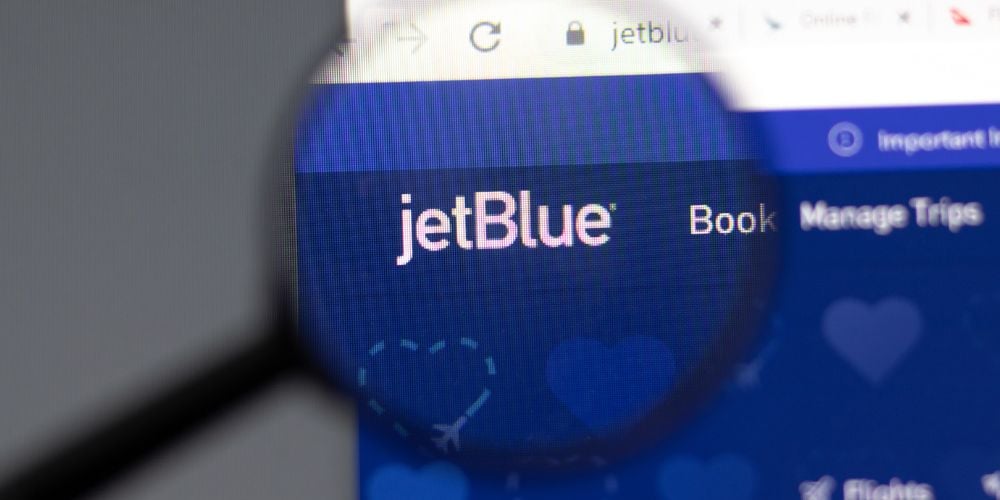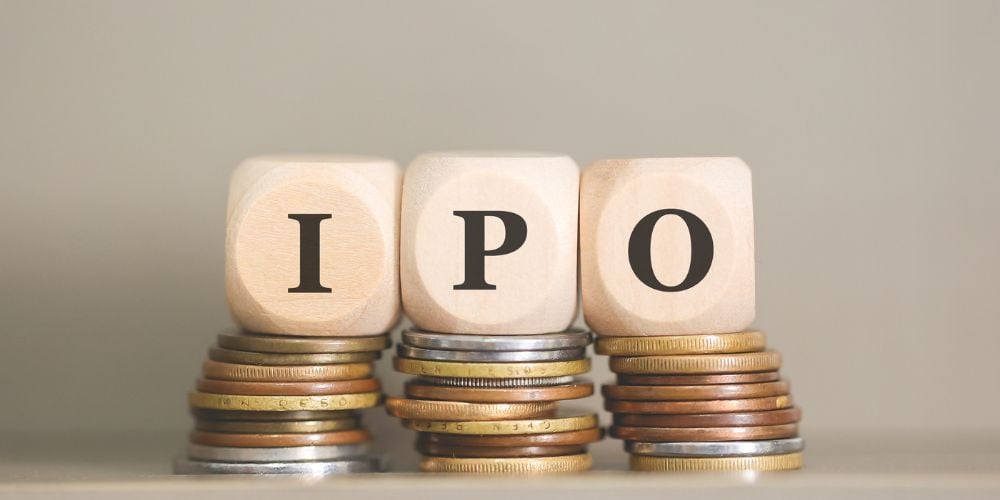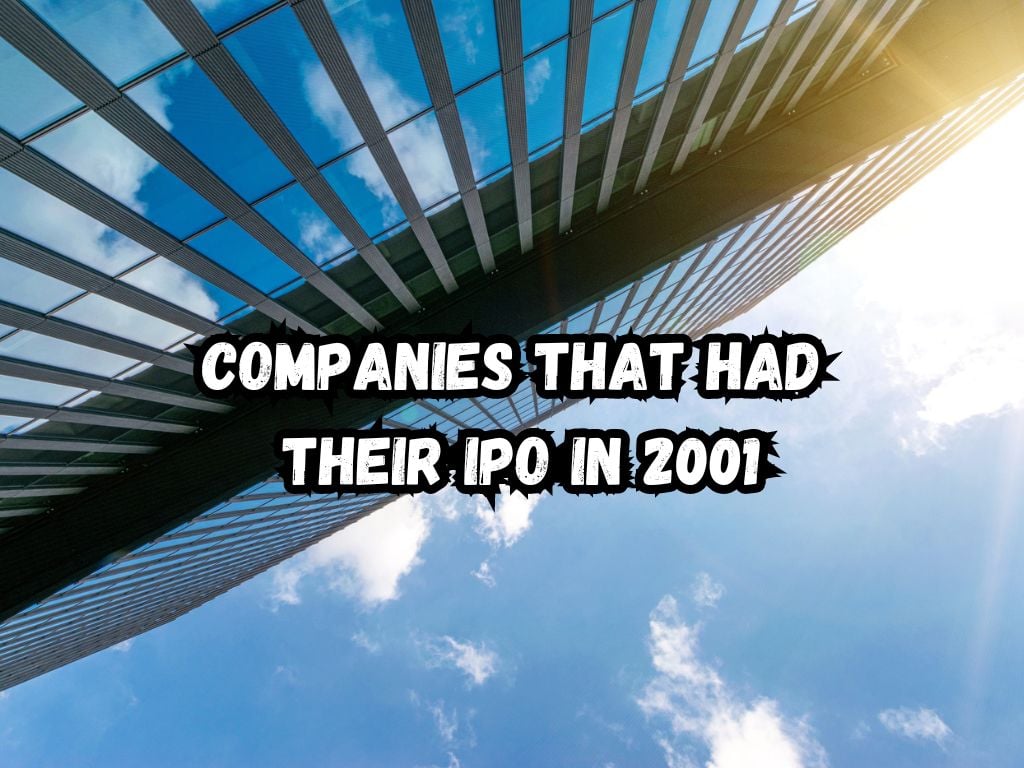Welcome to a journey back to 2001, a significant year in the world of initial public offerings, or IPOs. An IPO is the stepping stone for a privately held company to enter the public market.
That year bought many companies into the public eye, triggering considerable transformation in various industry sectors.
IPO Concept and Importance
If you’ve ever pondered why a deep dive into IPOs is necessary, the answer lies in understanding their crucial role. An IPO is a pivotal event in a company’s journey.
It represents growth, expansion, and the promise of new horizons. A review of past IPOs allows us to measure the company’s progress and market trends.
It helps us understand how economic landscapes influence a company’s growth and share value. As we revisit companies that had their IPO in 2001, we undertake an intriguing study of these trends and their influence.

Companies That Had Their IPO in 2001
The year 2001 marked the public launch of several notable companies. Each played a part in shaping market trends.
One of the memorable names was JetBlue, the popular American low-cost airline, which soared high after its IPO.
It offered a unique blend of affordability and value-added services. In the tech sector, LoudCloud, now known as Opsware, created a stir.
Another highlight was Kraft Foods Inc., a memorable name in the food and beverage industry, which added a zesty flavor to the market.
2001 saw a variety of companies going public across a range of sectors, despite the economic recessions and aftermath of the dot-com bubble. Here are some of the most noteworthy ones:
AFC Enterprises Inc.: Now recognized as Popeyes Louisiana Kitchen Inc., this company held its IPO in April 2001.
Popeyes, an American multinational chain of fast-food restaurants, has since grown into one of the largest fried chicken fast-food restaurants in the U.S.
RightNow Technologies: An American software company, RightNow Technologies, had its IPO in August 2001.
The firm specialized in customer relationship management (CRM) software and was later procured by Oracle Corporation in 2011. RightNow’s successful IPO set the stage for its growth and eventual acquisition.
China Telecom: Considered one of the largest telecommunications companies in China, China Telecom went public in October 2001.
The company opted for dual listing on the Hong Kong Stock Exchange and the New York Stock Exchange.
The IPO not only represented China Telecom’s rise as a global telecommunications player but also highlighted the increasing integration of Chinese companies into the global business landscape.
TIBCO Software: A software company based in Palo Alto, California, TIBCO Software had its IPO in July 2001.
The firm was known for its offerings in integration, analytics, and event-processing software for businesses to use on-premises or as part of cloud computing environments. In 2014, it was acquired by Vista Equity Partners.
Neopost: This European-based mailroom equipment manufacturer made its debut on the public market with its listing on the Euronext Paris exchange in June 2001. The company continues to be a leading player in the mailroom solutions industry.
AIB Group: A notable event in the banking sector was the IPO of the AIB Group in January 2001. Listed on the Irish Stock Exchange, the parent company of the Allied Irish Banks has been a key player in the European financial market.
XS Inc.: Initially launched with a focus on agriculture and food supply chain technology, XS Inc., also known as AgTech Accelerator, had its IPO in 2001. Since then, the company has expanded and evolved to fall under the banner of a technology accelerator.
Composite Technology Corporation: This energy and technology company went public in August 2001. The company’s IPO marked an important moment in the promotion of energy-efficient technology and was seen as a notable addition to the market.
These companies’ successful offerings created a platform for growth and served as a testament to their resilience in the face of difficult market conditions in 2001.
They have largely helped to shape their respective industries’ trajectories in the years since their public debuts.
Detailed Analysis of Selected IPOs
Delving into specific examples helps to illustrate the larger picture. JetBlue, which launched its IPO in April 2001, was one of the few profitable airlines at a time when others faced bankruptcy.
Its affordable fares and passenger-friendly services made it popular, reflecting in its successful IPO run.
LoudCloud, a computing company co-founded by Netscape’s Marc Andreessen, debuted in March, raising $150 million.
Labeled an ‘infrastructure service provider’, it was a novel concept that later transitioned into software services, testifying to the dynamic nature of the tech industry.
Kraft Foods, with its vast product portfolio and strong brand identity, launched in June with an ambitious IPO that raised around $8.68 billion. This debut marked it as one of the largest consumer product IPOs in U.S. history.

IPO Performance And Market Trends
The IPO market of 2001 was not at its peak due to the dot-com bubble burst in 2000. But the tech sector continued to contribute a fair share of debuts.
Companies that went public in 2001 faced numerous challenges, including a tough economic climate and post-bubble bear market fallout. Yet many managed to not only survive but thrive, becoming significant names in their respective industries.
Impact of 2001’s IPOs
IPOs of 2001 had a substantial impact on both the companies themselves and the markets at large. Each listing gave its company a platform for growth, a crucial influx of capital, and a new public identity.
For the market, new IPOs provide diversification, industry growth, and an influential shift in sector trends.
Frequently Asked Questions
What is an IPO and why is it important?
An IPO, or Initial Public Offering, is when a privately held company goes public by offering stocks for the first time. It plays a crucial role in allowing a company to raise capital for expansion, increased market exposure, and shareholder liquidity.
Which are some of the notable companies that had their IPO in 2001?
Key companies that debuted in the public market in 2001 include China Telecom, TIBCO Software, AIB Group, AFC Enterprises Inc. (now Popeyes Louisiana Kitchen Inc.), Composite Technology Corporation, and XS Inc. (now AgTech Accelerator).
How did the recession and the aftermath of the dot-com bubble affect the IPO market in 2001?
The IPO market in 2001 saw multiple challenges as the overall economic climate was unfavorable due to the recent dot-com bubble burst and emerging recession. However, multiple firms managed to have successful IPOs and even flourish in the long term.
Why was the IPO market diverse in 2001?
Despite the economic slump in 2001, companies across sectors from telecommunications and software to finance and food ventured into the public market, making the IPO landscape diverse.
What marked the success of the significant 2001 IPOs?
While companies faced a challenging economic landscape in 2001, those with strong business models, innovative offerings, and strategic planning managed to achieve successful IPOs. Many grew to shape industry trends and are even known as game-changers today.
Conclusion
In retrospect, 2001’s IPOs symbolize a fascinating period of economic resilience amid challenges.
The lessons from these companies offer valuable insights into market trends and industry dynamics.
Looking forward, these insights will continue to serve as useful markers for understanding future IPOs and market behavior.


 Tags:
Tags:










